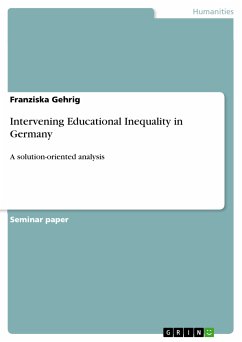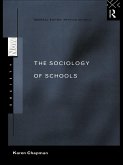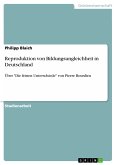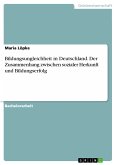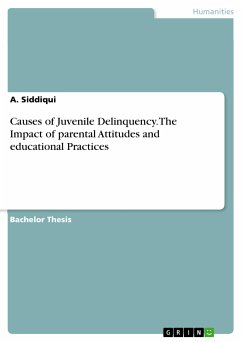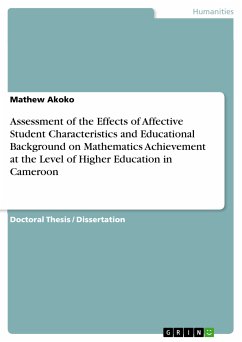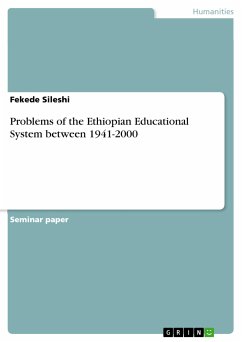Seminar paper from the year 2021 in the subject Sociology - Miscellaneous, grade: 1,0, University of Tubingen (Institut für Soziologie), course: Nature vs. Nurture? Childhood Inequalities from an interdisciplinary perspective, language: English, abstract: Education produces and reprodues inequality. Germany still scores at the top in social inequality in the education system compared to other European countries. Differences in families' given resources as unequally distributed starting conditions can, in principle, be compensated by schools. However, reality differs. Three main improvement areas are identified: schooling, kindergarten and school types/ tracking. These are based on an analysis of the determinants of educational success and inequality, the primary and secondary effects of social origin in the German education system. This paper focuses on pre-school, primary and secondary education and aims to find empirically based answers for inequalities and disadvantages. Five hypotheses are tested via reviewing studies and literature. The main findings are that summer schools have a significant effect on the performance of children and are able to reverse the phenomenon of performance fallback of low SES children and children with migration background - especially when German is their second language. Additionally, the usefulness of kindergarten, nurseries and KiTa's for improving language skills of children with migration background and for overall compensating family resources is well known and acknowledged. Gesamtschulen show an impressionable impact on reducing secondary effects of social orgin. However, the most promising hypothesis to delay or abolish the (early) tracking lacks strong evidence and empirical data for Germany - no final conclusion can be drawn here.
Dieser Download kann aus rechtlichen Gründen nur mit Rechnungsadresse in A, B, BG, CY, CZ, D, DK, EW, E, FIN, F, GR, HR, H, IRL, I, LT, L, LR, M, NL, PL, P, R, S, SLO, SK ausgeliefert werden.

